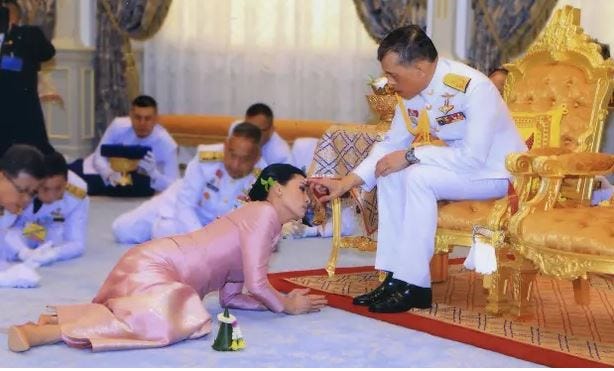Inequality of power between the states is openly flaunted, and many people, having become used to it during the past thirty years, take is as normal. Because they have lost self-respect.
Branko Milanović is an economist specialised in development and inequality. His newest book is “Capitalism, Alone: The Future of the System That Rules the World”
This article is cross-posted from Branko’s Substack blog

There is a news items today that, in simply reaffirming in an extreme form what was happening in the past thirty years, struck me. The Prime Ministers of the Netherlands and Luxembourg, presumably on behalf of the European Union, visited Serbia (before going to Kosovo) for less than 24 hours. They were received with the highest state-level honors, which by themselves were over-the-top because neither of them is the head of state. In addition, during their super short visit to Belgrade, they found enough time to have separate meetings with the representatives of the Serbian opposition (sitting in the Parliament in Belgrade) who are currently demonstrating in the streets, asking, in my opinion, quite legitimately for government’s much more serious crackdown on violence and crime.
Notice how Prime Ministers of Western countries checking things out with the domestic opposition seems like a normal news item. But then, let’s unroll it. There is an official state-to-state visit, and the representatives of the visiting state believe it is necessary to consult also with the domestic opposition. The first problem is whether it is appropriate to mix up state-to-state visit with the rest of politics. When countries’ dignitaries visit each other, they do not necessarily imply thereby that they agree with everything their hosts believe, nor that they support the government which receives them. They are there to talk about mutual economic and political interests with whatever government is in control of that particular piece of land. When the new and different government comes, they would be equally happy to speak with it. This is a simple and normal rule of international politics.
Let’s go further. If it is okay for the Dutch and Luxembourgeois Prime Ministers to talk to the Serbian opposition (while being there for twelve hours), would it be acceptable if, in a return visit, the Serbian President met with the Dutch and Luxembourgeois oppositions? If you believe that there is no reason for that because the Dutch and Luxembourgeois oppositions are not currently protesting in the streets, could we then wonder if, on his next trip to France, the President of Serbia could ask to meet with the “discontents” who are currently, very obviously, protesting in the cities of France? Or with the opponents of the pension reform? Or were he ever to visit the UK, could he ask to alternatively meet with the parliamentary and extra-parliamentary supporters of the Brexiters and of the Remainers?
The idea of the Serbian president asking officially to meet with the French or even Luxembourgeois opposition strikes one as so fanciful that it is laughable. It is a joke. It would indeed be treated as such, were it ever raised as a possibility. But like every joke, it tells us something about the real world. It is that relations between the states have become utterly unequal. Unlike in the period 1960-1990 when the Third World and non-aligned countries were strong and there was at least formally a recognition of equality of states, and in the diplomatic sphere, acceptance of that formal equality, we have moved to the medieval style of inter-state relations where power only matters–even in its ceremonial aspects. No hiding of inequality, but rather its display: prostrate yourself and kiss the edges of my purple robe!
Inequality of power between the states is openly flaunted, and many people, having become used to it during the past thirty years, take is as normal. Because they have lost self-respect.


Be the first to comment